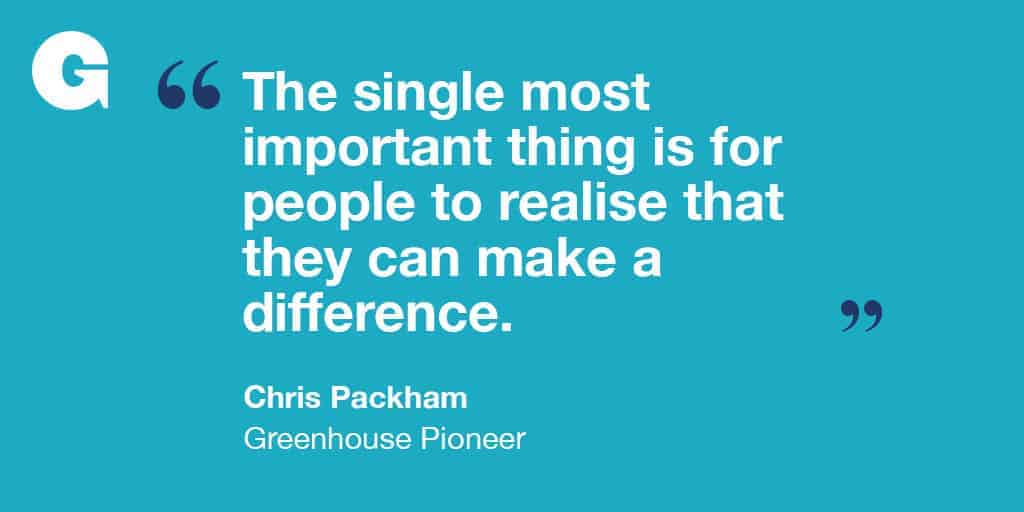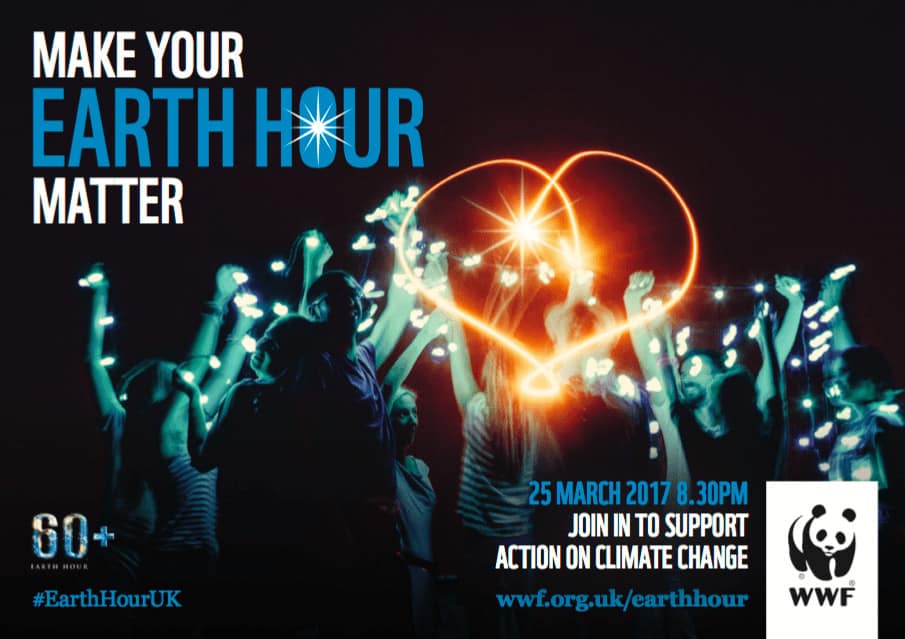Greenhouse Pioneer: Chris Packham

In the run up to Earth Hour, wildlife warrior Chris Packham reminds us why it’s imperative that individuals take action in the fight to protect our planet.
What conservation campaigns are you really excited about being involved with this year?
Recently I have been campaigning against the slaughter of migrant birds in the Mediterranean region. We have created a film to raise awareness about the fact that two million birds are killed in Cyprus every single year. Something has to change, and I am working with organisations like Birdlife and Committee Against Bird Slaughter to ensure that it does.
I have also been drawing attention to the fact that the population is growing excessively. I’ve been working with a group called Population Matters and recently wrote an article for The Times which described “how our human impact from population growth could cost our economy more than £23 billion, and the full hidden cost is even greater”.
It’s a topic that many people find difficult to address but it is critical that we do so. It is an even greater threat than climate change as there aren’t sufficient resources on the planet to cope if we continue to grow our population unsustainably.
What is your personal greatest achievement to date?
I don’t think I can single out my greatest achievement. In my lifetime, we’ve seen a 40% reduction in the worlds vertebrate fauna and 90 million birds have disappeared from the UK countryside.
The reason I continue this work is that we all believe that at a certain stage in the future it will finally be about proper care and consideration of the environment. But at the moment, it is just about trying to save what we can.
No political leaders at any level have any understanding of the need to look after the environment. The fact that the UK is thinking about investing millions of pounds in fracking, a fossil fuel, even though we all know we need to be moving towards far more sustainable sources of energy says everything.
What can we do in the meantime? Well, rather than moan about it down the pub we can get on a plane and go to Cyprus and try and make a difference ourselves and that is what I felt compelled to do.

How do you think you should compel other people to act?
The single most important thing to do is for people to realise that they can make a difference. I can empower myself to make a difference by going into my back garden and feeding the birds. The realisation of self-empowerment is the most important thing.
It is a terrible cliché but if every single person makes one change, that combined can make a huge difference. I think that increasingly people are realising that. And they are becoming frustrated with government and frustrated with NGOs that don’t do enough. Then hopefully legally, democratically and creatively we can actively seek change.
Everything is worth fighting for – for example a group of people in Sheffield are fighting to save the trees in their streets. It would be easy to be cynical and say hold on, it’s just a tree – we don’t need that tree. It doesn’t matter. But it’s very symbolic as these people understand the value of trees in their environment, they understand that those organisms should be respected. These people are my heroes. We have to fight every last battle and we have to save every last tree and every last tadpole.
Have you always been interested in conservation and the environment?
I have been interested in wildlife since a very young age. Born in 1961, by the time I was 3 or 4 I was obsessed, and by the time it got to 1970 it was then all about context. Yes, wildlife is beautiful, but I wanted it to continue to thrive.
Can you recommend a life changing book?
‘10 billion’ by Stephen Emmett. A book about the dangers of human population growth.
Another that I need to recommend is a book called ‘The Future of Life’ by E O Wilson. This deals with the same subject of population and the impact we are having on the earth’s biosphere, but it is a more optimistic book.
Together they represent two ways of looking at a significant problem that needs careful consideration.
What is the best advice you’ve ever been given?
In Dirty Harry, Clint Eastwood said ‘A man’s got to know his limitations’. I have always thought that’s right. I don’t think that I am good at what I do and I am certainly not good at what I don’t.
Can you leave us with who’d be your Eco Hero?
People that stand up to be counted and take a beating and then just carry on regardless are inspiring. I campaign with Mark Avery and I have enormous respect for him. Also, George Monbiot who writes for The Guardian – George finds the truth and prints it.
Earth Hour
WWF’s Earth Hour is an annual global celebration where people switch off their lights for one hour to show they care about the future of our planet. Make Earth Hour matter this year and support action on climate change by turning off your lights – and share your support with #EarthHourUK.
Our library of environmental pioneers celebrates the actions individuals are taking to prevent climate change and move towards a more sustainable future. Head over to the blog to hear from other activists such as; Alan Andrews from ClientEarth, Susannah Wood from Solarcentury and Kathleen Roberts, President of the Earth Day Network.



